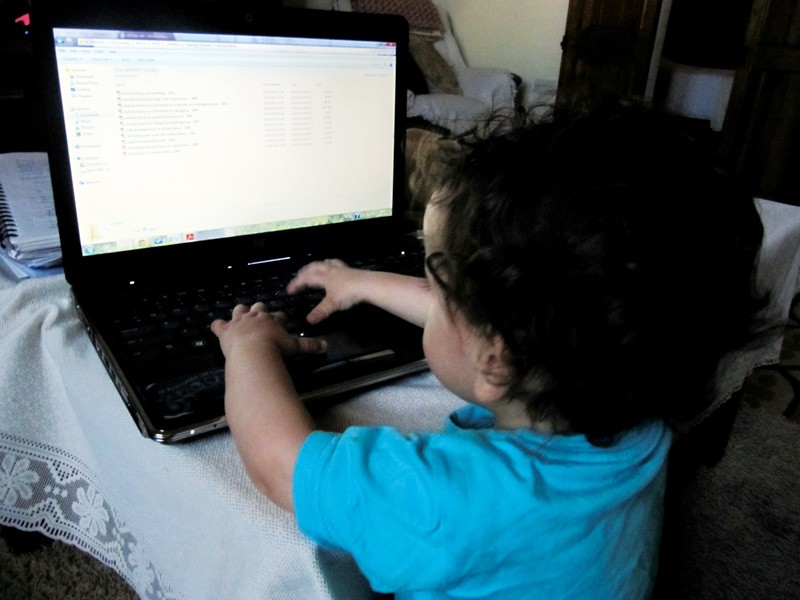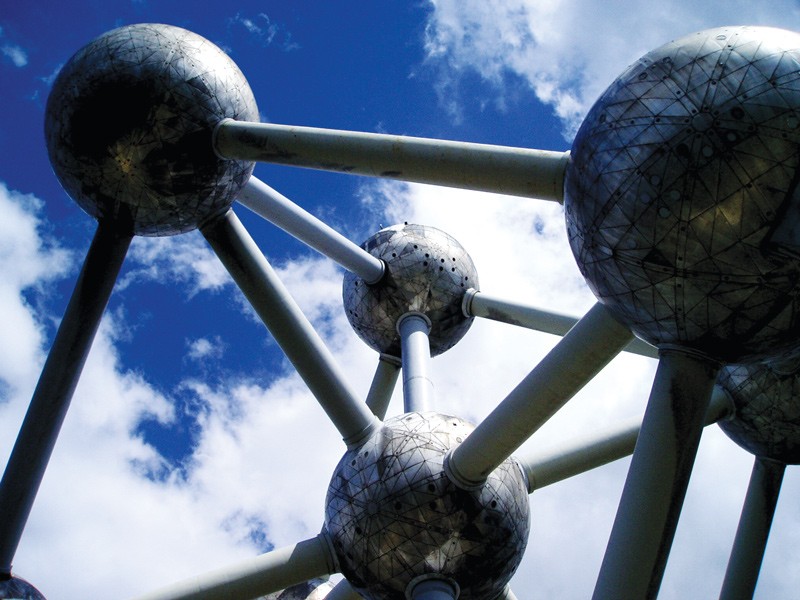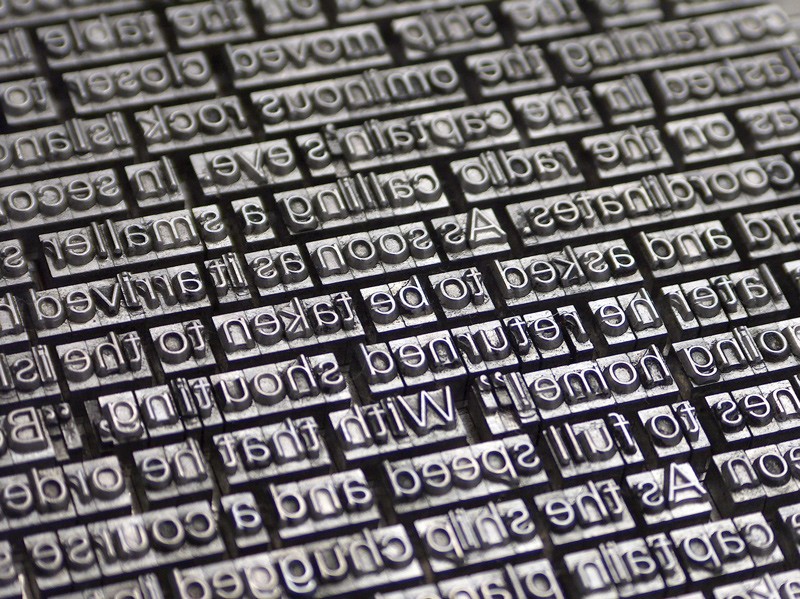Did Albert Einstein say we only use 10% of our brain?
Probably not. It has been misattributed to Einstein to explain his great intelligence. The idea being that if only we used more, we would unlock the powers of our mind, become mathematical geniuses, perhaps even become telekinetic. Unfortunately, even when we think we are being lazy, like sleeping, our minds are quite busy.
It has been misattributed to Einstein to explain his great intelligence. The idea being that if only we used more, we would unlock the powers of our mind, become mathematical geniuses, perhaps even become telekinetic. Unfortunately, even when we think we are being lazy, like sleeping, our minds are quite busy.
Is all hope lost? Are we stuck with the intelligence we have? Probably a good education does not hurt and cognitive scientists have identified two methods that can push our brains further. The first involves focus. By concentrating on a single task, you can use more of your brain and tackle those complex mathematical formulae. The brain is usually very distracted.
The second strategy is optimisation. It involves letting your brain find the optimal solution by stopping to think and considering many alternatives before jumping on one answer.
Creativity can use a totally different ball game. Sometimes it is best to let your brain wander and simply consider all alternatives. Our brain is too complex for a few basic strategies to apply to all situations.
Why did humans develop a large brain?
“Of all animals, man has the largest brain in proportion to his size” — Aristotle. Dr Yves Muscat Baron shares his theory on how humans evolved large brains. The theory outlines how gravity could have helped humans develop a large brain — the author has named the theory, ‘The Gravitational Vascular Theory’.
LOOKING UP TO THE SKIES
Malta is involved in the creation of the largest telescope ever built, the Square Kilometre Array. The telescope will be composed of 10 million antennas, process petaflops of data per day, and cost 1.5 billion euros. When built the array will peer deep into space to see how the first stars were born and attempt to solve the riddle of our origin. Words by Dr Kris Zarb Adami and Dr John Abela.
Attention, Research ahead!
B yDr Ernest CachiaContinue reading
A balancing act
I am writing this in a sports complex cafeteria, waiting to pick up my daughter from her ballet lesson. In the meantime, my eighteen-month old son tugs persistently at my sleeve — he wants to lick the froth off my capuccino and bang on the keyboard to make the screen respond. If this sounds familiar to you, then you may be one of those researchers who are juggling studies, work, and kids.
I am on the eve of submitting my Ph.D. dissertation. Since I started, there has not been a single birthday, Christmas, or ‘sick’ day when I was not at my laptop, working on my research. During the first year I found it difficult to concentrate. I was alone at home, with a lot of time on my hands, and there were days wasted on Facebook and eBay. Thankfully, I was brought back to my senses and managed to start focussing on my work.
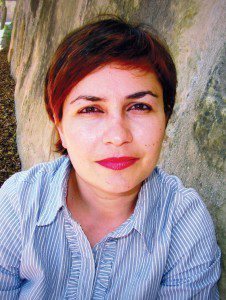
As the first year rolled into the next, my son was born. Perhaps this was irresponsible, but then again, one cannot put life on hold to achieve a degree. The pregnancy was not easy and even necessitated hospital admission for a short time. To complicate matters, I had an important exam in the week my son was meant to be born, so I spent many sleepless nights to complete my work in advance and take the exam earlier. Pregnancy even complicated flights, since I was refused airtickets when 33 weeks pregnant.
I usually work during the night, when the world is asleep, although this is not always guaranteed when babies share your habitat. I plan my work around their schedule, intensively writing while they sleep, and performing simpler tasks while they are running around the house and destroying every piece of furniture in the process.
Being a mum keeps me grounded. I now respect deadlines religiously, finishing early means I am able to spend more time with my loved ones. Kids can be very unpredictable — they fall sick at the eleventh hour, just before you are expected to email a chapter to your supervisors. A mother needs to attend school open days and sports days, stick holy pictures to Religion project books, and keep their hair free of lice. I either work on my research in every waking hour after I have satisfied mummy duties, or else have to compromise between family and studies. As far as possible, I do not let this happen. I do not have any superpowers and have never reached a work-life balance. I just make priorities. I may have laundry baskets overflowing with clothes waiting to be folded, but I prefer to take my kids to the playing field or watch a movie. I can do much more, of course, as a mother, and I do sometimes fail. When time is tight, to finish writing I can spend hours at my laptop with little interaction with my kids. Otherwise, it would be difficult to focus and to regain the thread of my thoughts.
For my studies, I need to visit campus abroad and to present at conferences. I usually take my son along with me. He’s too small to leave behind for more than a couple of days. Last summer I took him to Portugal for a conference and had to board three planes, a train and a bus. I am sometimes met with pitying glances, but very often people are helpful and understanding.
I may not be inspiring my kids to become researchers when they grow up. Indeed, my daughter wishes that I had taken up something more ‘glamorous’, but I believe and hope that my sense of diligence will rub off on them. That it will motivate them to chase their own dreams, as I am chasing mine.
Europe, inflation, interest rates, and a financial crisis
The world is currently going through the greatest financial crisis since the 1930s. To reverse the economic crunch, central banks lowered the rate of interest to reverse the slowdown in credit availability, a popular economic policy. Such approaches are based on solid economic theories. However, the unique crisis could have really changed how economies react.
Stephen Piccinino (supervised by Professor Josef Bonnici) analysed the relationship between inflation and interest rates in the euro area between 1999 and 2011. The economic theory called the Fisher effect defines this relationship, and assumes that if a central bank injects money too quickly into an economy it would simply raise the rate of inflation.
From January 1999 to August 2008, the Fisher effect held true and the rate of inflation increased with the rate of interest in a one-to-one fashion. While between September 2008 and March 2011, this relationship fell apart due to intervention by the European Central Bank (ECB). The ECB lent retail banks large sums of money at favourable rates. It also removed limits on how much banks could borrow and reduced interest rates. These changes influenced the relationship between interest rates and inflation.
During this period, inflation rose faster than interest rates, which meant that money held in bank accounts had a lower return than in previous years. These findings mirrored the Federal Reserve’s policy interventions in the US between 1979 and 1982.
Find out more HERE.
This research was undertaken as part of a Bachelor of Commerce (Honours) in Economics.
The making of Offshore Wind Energy
Malta has a problem. It relies heavily on fossil fuels such as oil to meet its energy needs. Whenever oil prices increase, either the people or the government take the brunt of the cost. The country also faces a strict deadline: by 2020 it needs to supply 10% of its energy needs from renewable sources such as wind, solar, or wave. To help reach this goal, a new project at the University of Malta is custom-designing offshore wind turbines.
Malta’s territorial waters are quite extensive but deep. The Hurd Bank area is the most suitable site at a depth of 50 to 70 metres. These depths are beyond the reach of current commercially available technology and the latest project in the windy, turbulent North Sea reaches 45 metres (The Beatrice
Project). 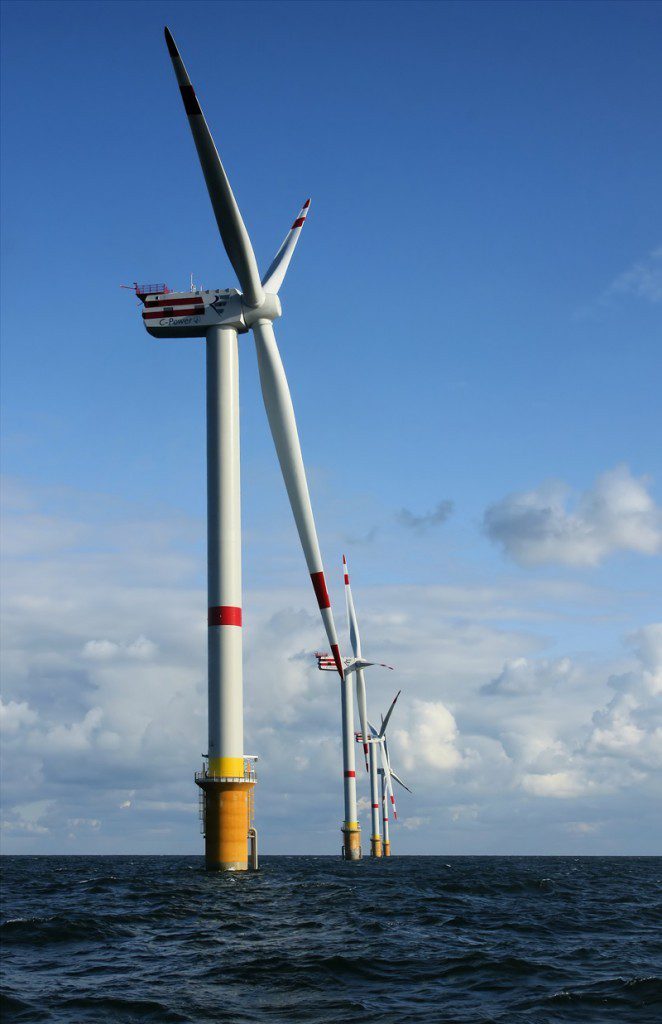
To construct a wind turbine for the Maltese region, Thomas Gauci (as part of a team consisting of University academics and industrial partners) is designing a structure specific to Malta. Seventy-metre deep waters will increase costs. On the other hand, the Mediterranean is relatively calm compared to the North Sea, so the support structure keeping the wind turbine in place can be lighter, which shaves off tons of raw materials and reduces the final price.
An offshore wind turbine needs to resist waves, corrosion, and storms. The design process of an offshore support structure is essential to keep it in place and starts with determining exactly where the turbines will be embedded and how they will be supported. After these questions are answered, the turbines’ exact specifications need to be determined, such as material, height, width, and what forces it can resist over a number of years. Speed of blade rotation also needs to be checked to make sure it does not cause discomfort to nearby humans and animals. Mr Gauci’s concept design meets all of these needs in compliance with international and EU standards. At this stage, the design needs to
be costed, right down to the installation and maintainance of the turbines.
If Malta builds these offshore wind turbines it would easily meet the 10% baseline set by the EU. Undeniably, such a large project will face numerous challenges, but perhaps Mr Gauci said it best: “not a day goes by when I don’t learn something new.”
Read more HERE.
This research was performed as part of a Masters of Science from the Faculty of Engineering
and is supported by MCST (Malta Council for Science and Technology).
Online chatting and spelling ability: myth, speculation and reality
The Gutenberg printing press revolutionised the world in 1455. It brought the written word to the masses, though in its day critics thought it would corrupt language. Today, text and instant messages are the new technologies that critics are accusing of degrading writing.
Research from Coventry University shows that online chatting can improve spelling, questioning the popular mythology spread by the media. Building on this foundation, Lara Vella (supervised by Professor Sandro Caruana) studied online chatting extracts by Maltese secondary school students. She found some evidence which shows that students who chatted online for several hours had a lower spelling ability.
To measure chatting behaviour, she distributed a questionnaire to 205 Maltese secondary school students (95 males and 110 females, who were about 14 years and 5 months old). These students were assessed on their spelling by two different tests and an analysis on extracts of online conversations. In Malta, it seems that chatting might be linked to a lower spelling score in both Maltese and English. Chatting and instant messaging is normally assumed to be dotted with spelling errors and abbreviated words, like: u, lol, abt, c, msg, tks, rofl and others. Her study showed that only 16.21% of the words used included such alternative spelling. Stereotypical beliefs did not hold true and were clearly outweighed by normal spelling.
Taken together, the study clearly shows that the relationship between spelling and online chatting is not clear-cut. Vella cautions that other factors affecting spelling need consideration. Speculation about the effect of online chatting needs to be replaced by research aimed at separating fact from fiction. Research will allow strategies to be developed that help improve literacy for Maltese students in the online world.
This research was performed as part of a Masters in Education at the Faculty of Education.
On Bulls and Bears
Hedge funds are pooled money that has few investment restrictions. The money usually comes from pension schemes or university endowments and their flexibility allows good hedge fund managers consistently net high returns. Hedge funds always beat the market, or so states economic theory. Simon Psaila (supervised by Mr Joseph Portelli) analysed markets from the 1990s up to the recent financial crisis finding a much more complicated scenario than is generally perceived.
The 1990s were a bull market, so called for having a consistently upward trend.
 In this confident atmosphere, it was found that hedge fund managers did not outperform other market indices, such as the Standard & Poor 500 — an index of 500 stocks of companies in the USA. The same was evident for the bull market of the mid 2000s. Only when the markets dipped into a bear market (downward trend) in the early 2000s did hedge funds perform better than other strategies. The reverse occurred during the recent recession starting in 2007, which proved problematic for hedge funds and many investors pulled out of the industry.Taken as a whole, this analysis shows that hedge funds do not consistently perform better than other strategies and depend on the market environment.
In this confident atmosphere, it was found that hedge fund managers did not outperform other market indices, such as the Standard & Poor 500 — an index of 500 stocks of companies in the USA. The same was evident for the bull market of the mid 2000s. Only when the markets dipped into a bear market (downward trend) in the early 2000s did hedge funds perform better than other strategies. The reverse occurred during the recent recession starting in 2007, which proved problematic for hedge funds and many investors pulled out of the industry.Taken as a whole, this analysis shows that hedge funds do not consistently perform better than other strategies and depend on the market environment.
This study was performed as part of a Bachelor of Commerce (Honours) at the Faculty of Economics, Management and Accountancy.






